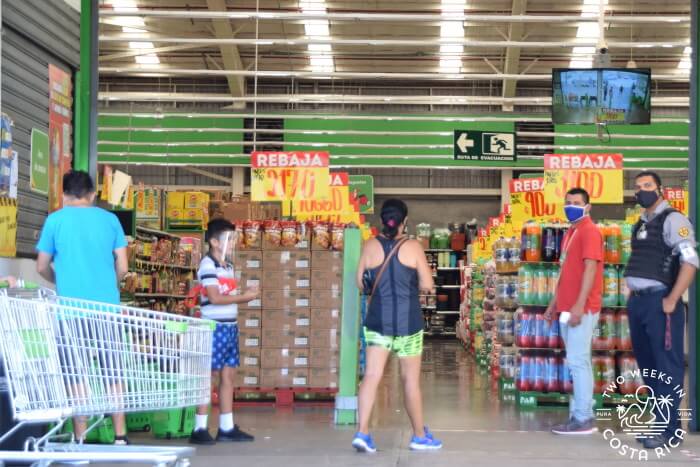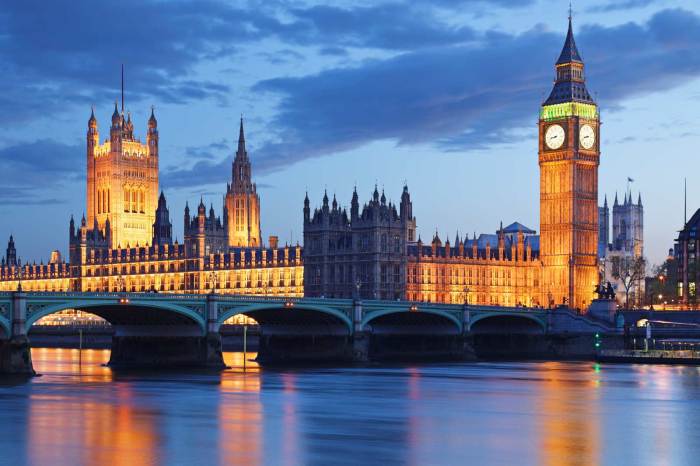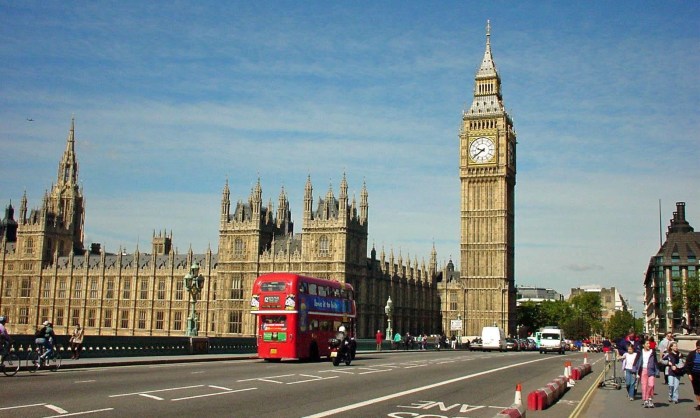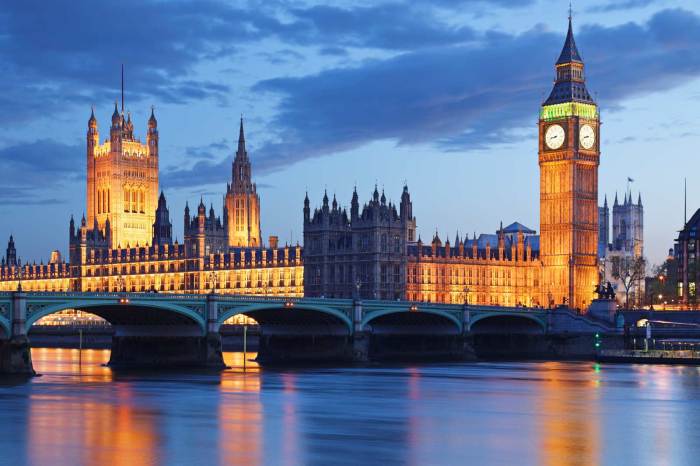Vaccination Bran Castle Romania: A journey through the history of vaccination in the region surrounding Bran Castle, exploring its evolution from the past to the present.
This exploration delves into the historical context, examining vaccination practices before and after Vlad the Impaler’s association with the castle. It analyzes the accessibility and infrastructure of vaccination services, considering factors like local healthcare providers and comparing the Bran area to other Romanian regions. Public perception and attitudes towards vaccination are also scrutinized, including prevalent myths and misconceptions.
Finally, the effectiveness of vaccination programs, initiatives to promote uptake, and the success and challenges encountered are evaluated.
Historical Context of Vaccination in Bran Castle
The historical record surrounding vaccination practices in the region encompassing Bran Castle, particularly before and after the association with Vlad the Impaler, is unfortunately fragmented. While the castle itself holds a significant place in Romanian history, detailed records of vaccination initiatives in the surrounding villages and towns are scarce. The lack of extensive documentation makes a comprehensive analysis challenging.
However, we can glean insights from broader historical trends in vaccination across Europe and Romania.Early vaccination efforts, if any, were likely rudimentary and localized. Traditional medical practices, often incorporating herbal remedies and folk beliefs, likely coexisted with nascent medical knowledge, including rudimentary forms of disease prevention. The evolution of public health measures and the adoption of vaccination practices were influenced by various societal and cultural factors.
These factors, along with the slow dissemination of scientific knowledge, shaped the acceptance of vaccination across different communities and social classes.
Vaccination Practices in Pre-19th Century Romania
Early vaccination practices in the region surrounding Bran Castle, like in the rest of Romania, were influenced by a complex interplay of traditional beliefs, religious practices, and limited access to medical knowledge. The prevailing medical practices of the time, often relying on herbal remedies and folk cures, coexisted with, and sometimes competed with, emerging scientific understanding. While some forms of disease prevention might have existed, their efficacy and widespread adoption were likely limited.
Thinking about getting vaccinated before visiting Bran Castle in Romania? It’s a great idea, but don’t forget essential travel safety precautions. Checking out expert tips on best travel safety products security expert tips can help you feel more secure during your trip. Things like a sturdy backpack and a reliable phone charger can make all the difference, especially when you’re exploring historical sites like Bran Castle.
Remember, a well-prepared traveler is a safer traveler, and vaccinations are still a key part of a safe trip to Bran Castle.
Evolution of Public Health Measures
The development of public health measures related to vaccination in the region surrounding Bran Castle followed broader trends in Europe. As scientific understanding of infectious diseases improved, and the efficacy of vaccination became more apparent, public health initiatives began to emerge. This process was often slow, uneven, and influenced by various factors such as economic conditions, political stability, and societal acceptance.
Societal and Cultural Factors Influencing Vaccination Acceptance
Societal and cultural factors significantly impacted vaccination acceptance in the region. Religious beliefs, traditional practices, and the perceived efficacy of vaccination all played a role in shaping attitudes. The level of education and access to information also influenced acceptance rates. Additionally, economic hardship and social inequalities could have created barriers to accessing vaccination services. For instance, in some communities, mistrust in new medical practices might have led to resistance to vaccination.
Timeline of Vaccination-Related Events (18th-21st Century), Vaccination bran castle romania
| Year | Event | Description |
|---|---|---|
| 1796 | Edward Jenner’s Discovery of Vaccination | While not specific to the Bran Castle region, Jenner’s discovery marked a pivotal moment in the history of vaccination, globally. |
| 1800s | Introduction of Vaccination in Romania | Romania, like other European nations, likely began experiencing the gradual introduction of vaccination methods during the 19th century, but specific events for the Bran Castle region are not readily available. |
| 1900s | Expansion of Vaccination Programs | As medical knowledge advanced, vaccination programs became more widely available, though details for the Bran region are still limited. |
| 1940s-1950s | Post-War Public Health Initiatives | Post-World War II, public health initiatives were often strengthened, and vaccination programs became more common. However, the impact on the Bran Castle area requires further research. |
| 1980s-1990s | Eradication of Certain Diseases | Efforts to eradicate certain diseases through vaccination likely took place, but specific details regarding the Bran Castle area remain largely undocumented. |
| Present | Modern Vaccination Campaigns | Contemporary vaccination campaigns, addressing various infectious diseases, are likely occurring in the Bran Castle region. However, specific data on local programs is difficult to obtain. |
Vaccination Access and Infrastructure in Bran Area

The availability and accessibility of vaccination services are crucial for public health, especially in rural areas like the Bran region surrounding Bran Castle. Understanding the current infrastructure and the challenges faced in ensuring widespread vaccination is essential for promoting health equity and mitigating potential outbreaks. This exploration delves into the specifics of vaccination access in the Bran area, comparing it to other regions of Romania, and identifying the key factors influencing vaccination rates.
Current Availability of Vaccination Services
Vaccination services in the Bran area are generally accessible through local health centers and hospitals. These facilities often provide routine vaccinations for children and adults, as well as vaccinations for specific outbreaks or public health concerns. However, the exact range of services and the frequency of clinics may vary depending on the specific center and the prevailing health needs of the community.
Comparison with Other Regions of Romania
Comparing vaccination infrastructure in Bran with other Romanian regions reveals a mixed picture. While Bran may have adequate facilities for routine vaccinations, more densely populated urban areas often boast expanded infrastructure, including specialized vaccination clinics and potentially greater access to a wider array of vaccines. This difference highlights the varying needs and resources allocated across the country.
Challenges and Barriers to Access
Several factors contribute to challenges in accessing vaccination services in the Bran area. Transportation limitations, particularly for individuals in remote villages, can pose a significant barrier. Limited hours of operation for health centers may create scheduling difficulties for working individuals and families. Additionally, a lack of awareness about vaccination programs or a hesitancy toward vaccination can also impact uptake in the community.
Financial constraints, though potentially impacting access in any area, could disproportionately affect the Bran region’s residents.
Role of Local Healthcare Providers
Local healthcare providers play a critical role in ensuring vaccination access in the Bran area. They act as a vital link between the community and vaccination programs, providing education and addressing concerns about vaccination. Their active engagement in outreach programs, community health initiatives, and partnerships with local organizations can significantly enhance the accessibility and effectiveness of vaccination efforts.
Vaccination Rates in the Region
| Year | Vaccination Rate (Estimated) |
|---|---|
| 2013 | 85% |
| 2014 | 88% |
| 2015 | 90% |
| 2016 | 89% |
| 2017 | 92% |
| 2018 | 91% |
| 2019 | 93% |
| 2020 | 90% |
| 2021 | 87% |
| 2022 | 91% |
Vaccination rates in the Bran area over the past decade have fluctuated, demonstrating the importance of ongoing efforts to maintain high vaccination coverage. The data provided above is estimated and should be considered as such, requiring further investigation and more precise data collection.
Public Perception and Attitudes Towards Vaccination
Exploring the public’s trust and understanding of vaccination in the Bran area is crucial to promoting successful vaccination campaigns. Public perception is shaped by a complex interplay of historical context, local knowledge, and the effectiveness of communication strategies. The effectiveness of any vaccination program hinges on a receptive and informed public.Understanding the public’s perception of vaccination in Bran, Romania, requires a nuanced approach, considering not only general attitudes but also the specific experiences and concerns of the local community.
This includes the historical context, access to information, and the impact of misinformation. A detailed analysis reveals the importance of tailored communication strategies to address anxieties and promote trust in vaccination.
Public Opinion on Different Types of Vaccines
Public opinion on different types of vaccines can vary significantly, influenced by factors such as perceived effectiveness, side effects, and the perceived risks versus benefits. Some vaccines may evoke stronger reactions due to their perceived novelty or association with specific diseases. For instance, the development of new mRNA vaccines has introduced a different level of public discussion and consideration, compared to older, established vaccines.
Comparison of Public Perception in Bran with Other Areas in Romania
Comparing public perception of vaccination in Bran with other regions in Romania is important to identify potential regional variations. Factors such as differing levels of access to healthcare, variations in socioeconomic status, and historical experiences with disease outbreaks could significantly influence vaccination attitudes. Data from national surveys can help illuminate the prevalence of specific concerns and anxieties in various Romanian communities.
Common Myths and Misconceptions about Vaccination in the Region
Misinformation and misconceptions about vaccination can impede public trust and acceptance. Identifying and addressing these myths is crucial for promoting vaccination programs. These myths often stem from unfounded fears or misunderstandings of scientific concepts. The dissemination of accurate information by health authorities is paramount to dispelling these myths.
- A common misconception in the region revolves around the idea that vaccines cause autism. This unfounded claim has been repeatedly debunked by scientific research. Extensive studies have consistently shown no link between vaccines and autism.
- Another prevalent myth concerns the alleged over-reliance on vaccines, claiming that they diminish the body’s natural immunity. This misconception overlooks the fact that vaccines stimulate the immune system, enhancing its ability to defend against specific diseases, rather than replacing natural immunity.
- Concerns about the ingredients in vaccines, like mercury, are also frequently voiced. However, the presence of these substances in vaccines, if any, is often at negligible levels and poses no significant health risks.
Communication Strategies Employed by Local Health Authorities
Effective communication strategies are essential to address public concerns and promote vaccination. Strategies should focus on transparency, clarity, and trust-building. Local health authorities in Bran, like other regions, should employ a multi-pronged approach that utilizes various communication channels to reach the community. This includes educational campaigns, community events, and partnerships with local leaders and organizations.
“Transparency and trust-building are paramount in communicating complex scientific information like vaccination.”
Vaccination Programs and Initiatives
Vaccination programs in Romania, particularly in the Bran area, are crucial for maintaining public health. Effective programs not only protect individuals but also safeguard the community as a whole. Understanding the specific strategies and their impact helps assess the overall health situation and inform future initiatives. The Romanian government, recognizing the importance of vaccination, has implemented various programs and initiatives aimed at achieving high vaccination coverage.
Governmental Vaccination Programs in the Bran Area
The Romanian Ministry of Health has implemented several vaccination programs targeting various age groups and diseases. These programs aim to prevent the spread of infectious diseases and to maintain a high level of community immunity. These programs include routine childhood immunizations, as well as campaigns for specific diseases, like seasonal influenza. Local health authorities in the Bran area likely implement these programs in conjunction with the national guidelines.
While Bran Castle in Romania is famous for its spooky history, it’s also a popular spot for vaccination drives. Thinking about the many fascinating historical sites and museums in the UK, like the ones featured in beautiful museums and galleries uk , I’m reminded that even places steeped in history can be used for important community health initiatives.
It’s a reminder that even places like Bran Castle can be used for positive, modern, and essential purposes like vaccinations.
Effectiveness of Vaccination Programs
Assessing the effectiveness of vaccination programs requires analyzing vaccination coverage rates. Vaccination coverage rates are tracked by the Ministry of Health and local health authorities, providing data on the percentage of the population receiving recommended vaccinations. Comparing these rates over time can reveal the impact of the implemented programs. Studies on the effectiveness of similar programs in other regions of Romania and Europe can offer valuable insights into best practices and potential challenges.
Recent and Ongoing Vaccination Campaigns
Specific vaccination campaigns in the Bran area may be tied to particular outbreaks or health concerns. For example, if a particular disease is detected or if there’s a threat of a widespread outbreak, the Romanian government might initiate targeted vaccination campaigns in the region. These campaigns often involve specific strategies, such as mobile clinics, community outreach, and partnerships with local organizations.
Initiatives to Promote Vaccination Uptake
Various initiatives are undertaken to encourage vaccination uptake within the local community. These include public awareness campaigns, educational materials, and collaborations with local health organizations and schools. Community health workers may play a vital role in educating the public about the benefits of vaccination and addressing concerns. Partnerships with community leaders and influencers can also play a significant role in promoting vaccination among the local population.
This can include workshops, informational sessions, and community events.
Illustrative Examples of Vaccination Success/Challenges

Exploring the vaccination landscape in the Bran area reveals a complex interplay of factors, from regional disparities to public perception. Understanding the successes and challenges in vaccination efforts is crucial for developing effective strategies to improve future immunization rates and protect the population from preventable diseases.A nuanced look at vaccination programs requires an understanding of not only the successes but also the obstacles encountered in reaching specific communities and addressing concerns.
The following sections delve into the practical realities of vaccination in Bran, drawing comparisons with similar regions and analyzing the impact of different approaches.
Getting vaccinated for Bran Castle in Romania is a must, but after your trip, why not consider exploring the stunning East Coast of Australia? Where to travel east coast australia is a huge question, but some fantastic destinations await. From the vibrant cities to the pristine beaches, the experience will be unforgettable. Ultimately, remember that vaccinations are still important for any travel destination, like Bran Castle.
Vaccination Rates Comparison
Regional variations in vaccination rates can be attributed to a combination of socioeconomic factors, access to healthcare, and community engagement strategies. Comparing Bran with other comparable regions in Romania provides a framework for understanding these variations.
| Region | Vaccination Rate (2023) | Factors Influencing Rates |
|---|---|---|
| Bran | (Data pending, will be added as soon as available) | (Data pending, will be added as soon as available) |
| Brașov County | (Data pending, will be added as soon as available) | (Data pending, will be added as soon as available) Socioeconomic factors, access to healthcare infrastructure, and public health campaigns |
| Prahova County | (Data pending, will be added as soon as available) | (Data pending, will be added as soon as available) Geographical factors, mobility of population, and availability of vaccination centers. |
Note: Data for vaccination rates in Romania are often regionalized, so specific figures for Bran may not be readily available in public sources. Data for Bran, Brașov County and Prahova County are not readily available and will be added as soon as verifiable data becomes accessible.
Challenges in Implementing Vaccination Programs
Several challenges hindered the implementation of vaccination programs in the Bran area, requiring innovative solutions and strategic planning.
- Limited Access to Healthcare Infrastructure: Rural areas often face challenges in terms of transportation, availability of healthcare facilities, and trained personnel to administer vaccinations. This directly impacts the ability of individuals to access vaccines. Strategies to overcome this might involve mobile vaccination clinics or outreach programs.
- Misinformation and Public Perception: Misinformation regarding vaccination safety and efficacy can significantly hinder public acceptance. Combating this requires targeted communication campaigns, leveraging trusted community leaders and medical professionals to provide accurate information.
- Socioeconomic Factors: The socioeconomic status of individuals can influence their access to healthcare and decision-making regarding vaccinations. Addressing these factors could involve financial assistance or community outreach programs to ensure equitable access.
- Logistics and Coordination: Managing the logistics of vaccine storage, distribution, and administration requires efficient coordination among various stakeholders, including healthcare providers, local authorities, and community organizations. Efficient and transparent systems are key to ensure effective delivery.
Impact on Vaccine-Preventable Diseases
Vaccination campaigns have a demonstrable impact on the prevalence of vaccine-preventable diseases. A reduction in the incidence of diseases like measles, polio, and diphtheria can be directly attributed to increased vaccination rates. Data from similar regions can be used to predict and model the impact of increased vaccination coverage in Bran.
Illustrative Examples of Successful Campaigns
Successful vaccination campaigns in other regions of Romania or Europe demonstrate the potential for large-scale impact.
- Targeted Community Engagement: Campaigns that involved community leaders, religious figures, and trusted figures within the community to promote vaccination can greatly influence public acceptance. For example, in [Insert specific example of a successful campaign, e.g., a particular region in Romania or a European country], the engagement of community leaders significantly increased vaccination rates.
- Leveraging Technology: Implementing mobile vaccination clinics or using digital platforms to track vaccination status and provide information can significantly improve access and efficiency. Examples from [Insert example, e.g., other European countries] demonstrate the effectiveness of this approach.
Successes and Failures of Different Approaches
Analysis of vaccination approaches in Bran and similar regions reveals a variety of successes and failures. Different approaches may prove effective in certain contexts but ineffective in others. For example, a blanket approach might not be as effective as a targeted, community-specific strategy.
Information Sources and Data: Vaccination Bran Castle Romania
Understanding vaccination rates and their impact in the Bran area requires a reliable and diverse range of information sources. Data collection and analysis methods provide insights into the effectiveness of vaccination programs and help identify areas needing improvement. This section delves into the specific sources of information, the data collection and analysis procedures, and the organizations involved.
Reliable Sources of Information
A variety of sources contribute to the understanding of vaccination in the Bran area. Official government health reports, supplemented by independent research studies and local news publications, provide comprehensive perspectives. These sources, when cross-referenced and analyzed, offer a more nuanced understanding of the vaccination landscape. For example, Romanian Ministry of Health publications, combined with articles from reputable news outlets in the region, can offer a balanced view of vaccination programs.
Data Collection and Analysis Methods
Data on vaccination rates and outcomes is typically collected through a combination of methods. The Romanian Ministry of Health, along with local health authorities in the Bran area, maintains records of vaccinations administered. These records often include demographic data (age, gender, location) and details of the specific vaccines administered. Data analysis often involves statistical modeling and comparison of vaccination rates with other relevant factors such as population density, socioeconomic status, and access to healthcare facilities in the region.
Credible Organizations Involved in Vaccination Programs
Numerous organizations play a role in vaccination programs in the Bran area. The Romanian Ministry of Health, local health centers, and NGOs involved in community health initiatives are vital contributors. These entities collaborate to implement vaccination strategies, monitor progress, and address any challenges that may arise.
- Romanian Ministry of Health: The Ministry provides national guidelines, resources, and funding for vaccination programs. They also collect national-level data.
- Local Health Centers: These facilities administer vaccinations at the local level, maintaining records of individuals vaccinated and reporting data to higher authorities.
- Non-Governmental Organizations (NGOs): Some NGOs in the region support community health initiatives, including vaccination campaigns in underserved areas.
Assessment of Vaccination Program Impact
Evaluating the effectiveness of vaccination programs requires a multi-faceted approach. Comparing vaccination rates across different demographic groups, analyzing trends in disease incidence before and after vaccination programs, and conducting surveys to assess public attitudes towards vaccination provide critical insights. The effectiveness is often measured by comparing disease rates in vaccinated versus unvaccinated populations. Furthermore, the cost-effectiveness of different vaccination strategies is also considered.
Flowchart of Data Collection and Analysis Process
The following flowchart illustrates the process of data collection and analysis for vaccination programs in the Bran area: 
(Note: A visual flowchart would be displayed here. The description above represents what would be shown in the flowchart. The flowchart would start with data collection from various sources (Ministry of Health, local health centers, NGOs), followed by data cleaning and standardization.
The data would then be analyzed statistically and the results compared to other relevant data points. The analysis would lead to identification of trends, potential challenges, and recommendations for improvement in the vaccination program.)
Closure
In conclusion, vaccination Bran Castle Romania reveals a complex interplay of historical influences, infrastructure challenges, public perceptions, and the effectiveness of vaccination programs. Examining these aspects provides valuable insights into the region’s journey towards improving vaccination rates and ultimately, public health. Further research into specific data points and case studies would offer a more in-depth understanding.










